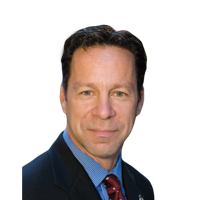Featured on Home Page
NDT | Liquid Penetrant Testing
Liquid penetrant testing is known for being relatively easy to perform, but it does requires skilled technicians to perform and interpret results accurately and consistently.
Read More
NDT | Laser NDT
Laser-Based NDT Methods for Precise Inspection of High-Value, Safety-Critical Components
Laser-based NDT methods continue to be refined and improved, with recent significant advancements in the measurement of difficult-to-inspect shiny surfaces, underwater and radiation environments.
July 8, 2024
Management
The Evolving Role of Quality Professionals in the Quality 4.0 Era: Merging Human Expertise with Technological Advancements
Machines can accomplish so much of what humans used to do. Now is the time to leverage technology while capitalizing on the unique qualities humans bring.
July 5, 2024
Management
The Rise of AI Governance: Unpacking ISO/IEC 42001
The need for AI governance has never been more pressing.
July 5, 2024
Lean with Lazarus | Ian R. Lazarus
Quality is Relative
Fortunately for quality managers, there are a number of effective tools to ground the quality team in what standards are the most important.
July 3, 2024
Column | John Vandenbemden
Brief History of ANSI/ASQ Z1.4
Military standards came from a need for a sampling system that did not require 100% inspection for use in testing munitions and other destructive tests.
July 3, 2024
Speaking of Quality | Claire Hopkins
Creating a Space for NextGens
Quality is present in all sorts of industries, which makes it a vibrant and
interesting field, but also presents a challenge when looking to find new
professionals to bring into the community.
July 1, 2024
Lean with Lazarus | Ian R. Lazarus
What’s the Big Deal with Big Data?
There is an interesting difference of opinion over how much data should be collected.
June 28, 2024
Column | John Vandenbemden
Organizational Knowledge: So, where do we begin?
There is so much information and knowledge within an organization.
June 27, 2024
Stay in the know with Quality’s comprehensive coverage of
the manufacturing and metrology industries.
eNewsletter | Website | eMagazine
JOIN TODAY!Copyright ©2024. All Rights Reserved BNP Media.
Design, CMS, Hosting & Web Development :: ePublishing












